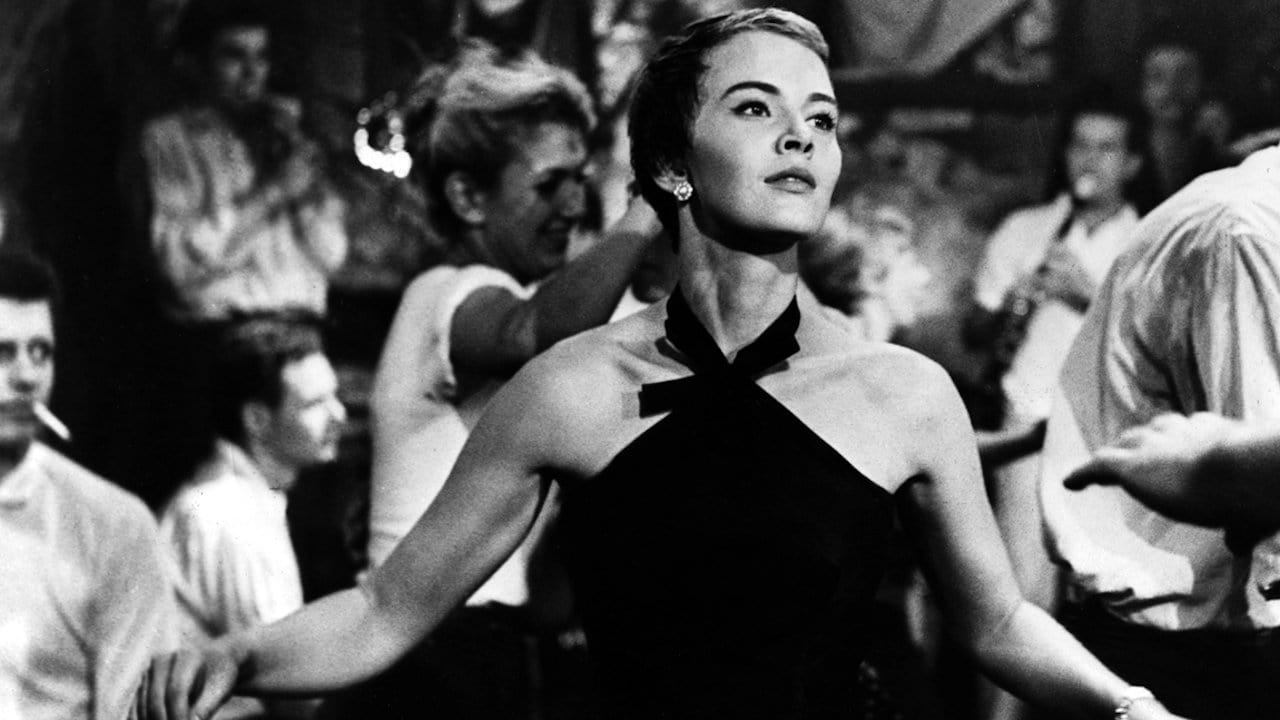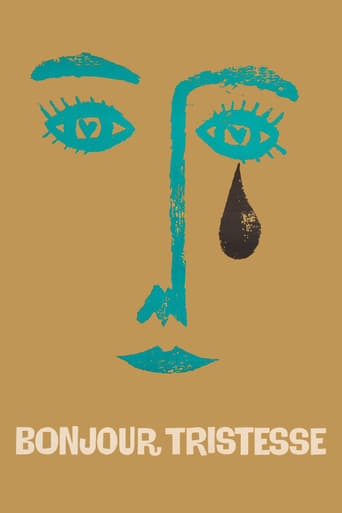

Pretty Good
... View MoreGood concept, poorly executed.
... View MoreOk... Let's be honest. It cannot be the best movie but is quite enjoyable. The movie has the potential to develop a great plot for future movies
... View MoreThe joyful confection is coated in a sparkly gloss, bright enough to gleam from the darkest, most cynical corners.
... View MoreNormally I hate remakes, but I think it would be hard to make this film worse than it already is, so I say "Go for it!" because the story might be worth telling.The story actually isn't much, and deserved a better script and tighter editing to keep the audience interested, not to mention better direction, and acting (including Seberg). I was constantly having to replay scenes, because my mind would drift away from the film, as it was so dull.Even the music was bad. I mean, by the zillionth time they play a variation on that theme ... good grief, we get it already! It must have been a bargain.The characters never really evolve one way or another. They just sort of change (or not) for no particular reason. It's devoid of feeling, even when there should be feeling. We're just supposed to assume it makes sense, without actually taking that journey with the characters.The narration was a big negative as well. Sure, the character may be annoying and childish, but that's no reason to subject us to annoying and childish ramblings.I did enjoy the cinematography, and the use of colour.Even in the 6.5 - 7.0 range, this film is overrated. The pity is that it could have been done well, and wasn't.
... View MoreThe wonderfully fresh and vivacious Jean Seberg here shines in her second film. The previous year she had played Joan of Arc (chosen from 18,000 young girls who auditioned for the role), and here Otto Preminger directs his protégé again to superb effect. The film opens with very dramatic music by Georges Auric. This film is based upon the best-selling first novel by the young Francoise Sagan, which created a scandal then but now is not scandalous at all. What passed for 'decadence' at the time was a life of aimless idling by the rich on the Riviera, some gambling, some boating, some swimming, some affairs, and a great deal of insipid self-indulgence. This we see epitomised in Seberg's father, played to perfection by David Niven, a shallow idler and womanizer who straightens his bow tie self-consciously between seductions in the bushes. He and Jean have a 'father-and-daughter-thing' because her mother died long ago, and they really don't want anybody else in their lives apart from casual partners with whom they can romp, only to throw them away when used, joking about them to each other as they get ready to have an evening out. As the film opens, Niven's girlfriend of the moment is Elsa, a charmingly empty-headed creature played delightfully by Mylene Demongeot, who shows such talent as a restrained comedienne. Juliette Greco makes a full-throated appearance in a club, singing the film's theme song all the way through as the dancing and whirling Jean stares at her glassy-eyed over men's shoulders, lost in haunted visions of regret. In 1958, the teenage girls of Britain all swooned over and identified with Jean Seberg, who seems to have originated the shorn boyish haircut which Mia Farrow later copied. Niven as the amiable cad was pretty much what one would expect. But into this mix comes Miss Straight, in the form of Deborah Kerr, who says to Niven when he gets flirty: 'I don't want to be casual.' That's for sure. When Niven finally decides he wants to marry her, she becomes a Little Hitler in no time, bossing Jean around, stopping everyone having 'fun', and generally making herself odious with her control-freakery. This leads to a campaign to drive her out by Jean and Elsa, who has been unceremoniously dumped. Meanwhile, Kerr has fallen hard, and in a revealing shot in the harsh sun we even discover that her true complexion was rather gingery and freckly, something concealed in her other films. Tragedy is not long in coming, hence the 'tristesse'. This is a social document of the 1950s which people interested in knowing what things were once like should watch. The film is directed by a master, Preminger, and Jean Seberg 'makes it' entirely. She is so refreshing, natural, young, real. Poor Jean Seberg. By the age of 40 she was dead. But she left much to remember her by: no one who has seen 'Breathless' (1960) can ever forget her. This film too keeps her wonderful memory alive. Her best acting performance was probably in 'Lilith', but she does well enough here, wholly dominating the screen and acting circles round the old pros. Oh yes, and then there's the inside joke about Eveline Eyfel playing three identical sisters who act as the maid, which is an amusing touch. The Mediterranean sparkles in the sunshine, the pine trees along the beach are exuding their aroma, swim suits dry in minutes: come on in, the water's fine!
... View MoreSeems I didn't miss all that much - if indeed anything at all - by failing to catch up with this oven-ready turkey until now. As a director Preminger was uneven at best and often relied on controversy - The Moon Is Blue, The Man With The Golden Arm - in lieu of genuine talent; whilst it's true he had at least one Laura in him that was outweighed by one too many Hurry Sundowns. Having 'discovered' Jean Seberg and miscast her monumentally in St. Joan the previous year he attempted to prove his judgment right on the money by using her again in this adaptation of a novel by a seventeen year old French girl, proving only how far off the money he was. This is best described as a Soap with Classical pretensions. Living a quasi incestuous Riviera lifestyle with swinger pop David Niven, Seberg is miffed when Deborah Kerr looms up as prospective wife/stepmom material and plots her downfall. That's all, folks. Students or irony may or may not relish the fact that this movie was released just as the new wavelet was approaching the shore of real Cinema and Seberg, unable to register there, went on to star in Godard's Brainless and help give that new wavelet its brief moment in the sun before Real Talents reclaimed the cinema. Nice one, Otto.
... View MoreBonjour Tristesse covers similar ground as 'The Member of the Wedding.' to wit, a possessive daughter tries to prevent a relationship from forming between a beloved family member and an interloper. While critics love 'Member of the Wedding,' I find Julie Harris to be a jumbo-drag and an adenoidal, scenery-chomping thespian in everything she's been in. This portrays irritating, rich idiots as in Last Year at Marienbad, but this time it's a travelogue.In this Preminger movie sequences develop, but characters do not. For the first 30 minutes he's content to blur the father-daughter relationship between Seberg and Niven, making uncomfortable sexual readings possible. Once the conflict is introduced, Seberg can't deliver the depth the part requires. Kerr pulls rank and turns the film into 'Endless Love.' Seberg's vacuous narration, is like something out of Strange Interlude - it is not good. I really wish someone other than Niven was in his role. He spends so much time normalizing orthodox British behavior in all his movies, he never gets around to the character.In the most memorable sequence, an evening out dancing becomes a free-for-all in a harbor. Bertolucci steals the entire scene for his empty exercise, 'The Conformist.' Kerr is on board to clasp her hands and portray another major pain (as in Black Narcissus, Night of the Iguana, King and I, Heaven Knows Mr. Allyson, Tea and Sympathy, etc. etc.). Really, Kerr was a horrible actress. I wish every movie with her could end with a fatal car crash, or even better, start with one.People uncomfortable with ambiguity should avoid this.
... View More